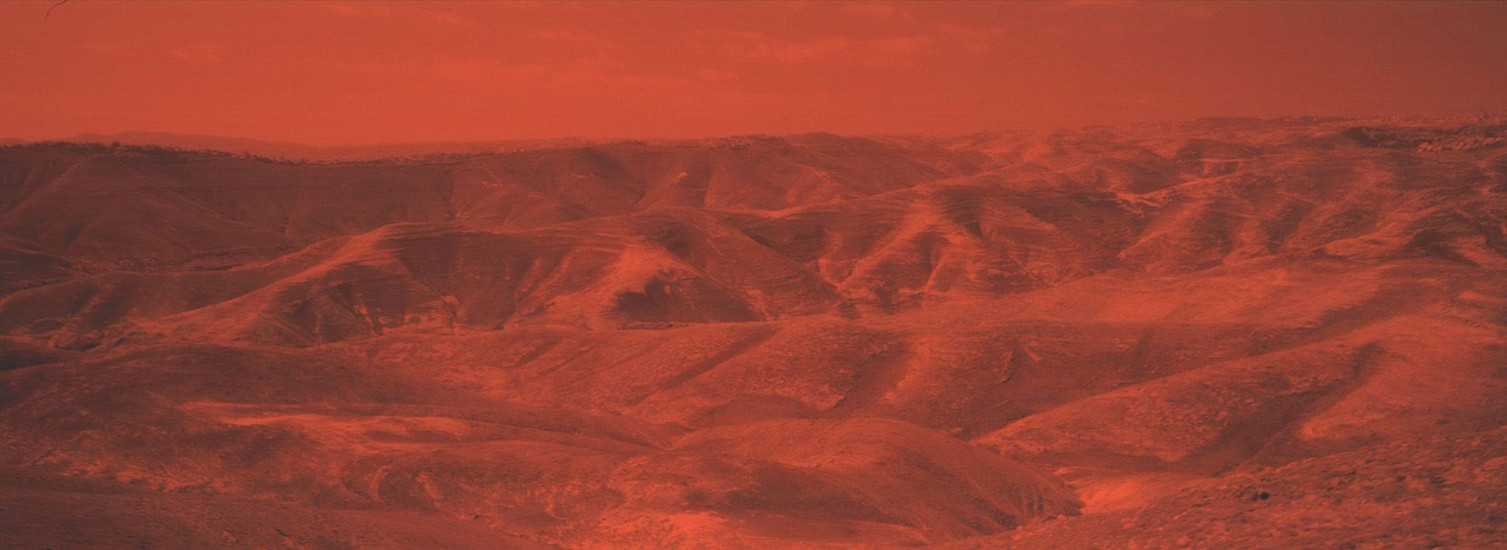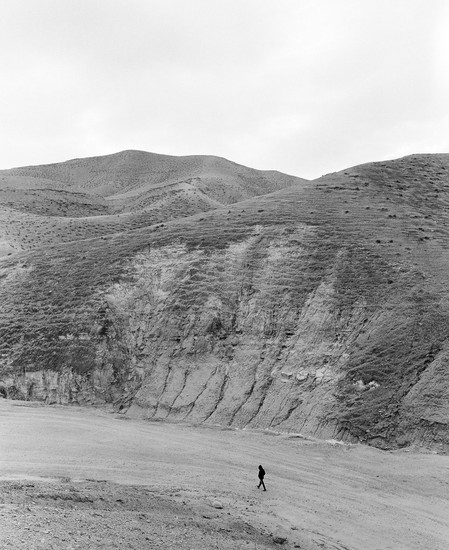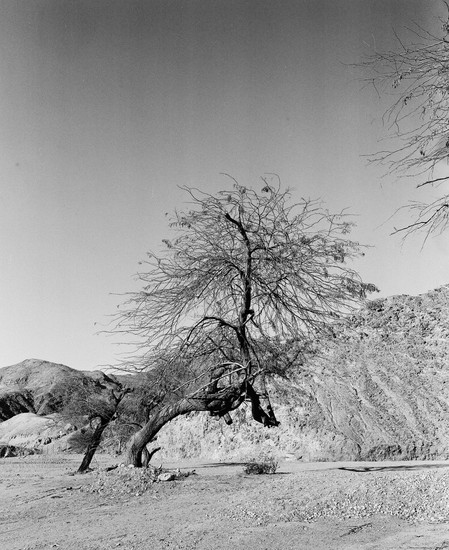Subject to Change
Daniel Tchetchik
Curator: Maya Anner
Daniel Tchetchik’s exhibition Subject to Change presents works the artist created in the last two years during ventures across Israel, some of which took place at the height of the first lockdown. During this time, Tchetchik captured traces of change, anxiety and uncertainty that fractured our daily existence.
The exhibition offers a deep look into two photographic series that continue his long-term exploration of the global climate crisis. These works are emblematic of Tchetchik's practice, which combines documentary photography with a personal interpretation.
In the series Edge, Tchetchik documented the disintegration of cliffs along the coasts of Israel. His decision to photograph the works with a large-format analog camera and to print them as photo-etchings, is his response to the rapid and disruptive changes he experiences around him. A call to stop and slow down. Through his work method and the quiet aesthetic of the prints, the artist asks the viewers to pause and delve into a meditative observation of the works.
In addition to the 13 etchings that compose this series, the original negative of one of the works is displayed inside a lightbox. The decision to showcase some of the raw materials within the exhibition space is part of Tchetchik’s broader discussion about process and change. Viewers are exposed to the different stages in the evolution of the material: The negative turns into a positive, which then becomes a print or an etching. The artist is thereby offering us a reflection on the essence of photography, a return to the materials from which it is constructed. He is proposing that we observe the photograph as a unique singular object, in opposition to the medium of photography, which represents the very possibility of replication and multiplicity. The process and transformation that the photographic material undergoes echoes the transformation in the landscape that Tchetchik’s works document, thus providing another layer to the title of the exhibition – Subject to Change.
In the series Zero Altitude, Tchetchik documented various locations in the country that are categorized in the topographic index as "Sea Level”, creating a poetic testimony to the depth of the climate crisis. The works in the series carry with them a disturbing, uneasy silence, a prophetic expectation of an impending disaster. The sea is absent - present in all the works, symbolizing a tension between the visual emptiness and an unknown future.
Human figures are almost entirely absent from most of the photographs, except for two works. In the first, entitled One, a lone man is seen walking, his head bowed; he appears almost miniature against the backdrop of the desert mountains. In the work Dusk, dark human silhouettes search for meaning along the shoreline, no different than the birds collecting crumbs at the forefront of the photograph. The heavy clouds and the grainy quality of the photograph merge to create an apocalyptic atmosphere. Similar to the absent sea, even when humans are missing from the landscape, the damage they create and the distress they feel are present in all photographs.
Tchetchik’s work is deeply rooted in art history, continuing a long tradition of romantic landscape photography, from Edward Weston and Ansel Adams, to Hiroshi Sugimoto. It also corresponds with the history of painting, bringing to mind the works of Caspar David Friedrich, Mark Rothko and Impressionist painting.
While some of the works are rough and painful, others are poetic and beautiful, yet they all carry a profound weight of sadness. Tchetchik provides subtle evidence of mankind’s disruption of nature, while presenting man’s fragility when facing it.
Every moment that Tchetchik chooses to stop and frame is a requiem. A glance into a future of transition, a plea to remember what will soon pass. Time has passed, time will pass.




